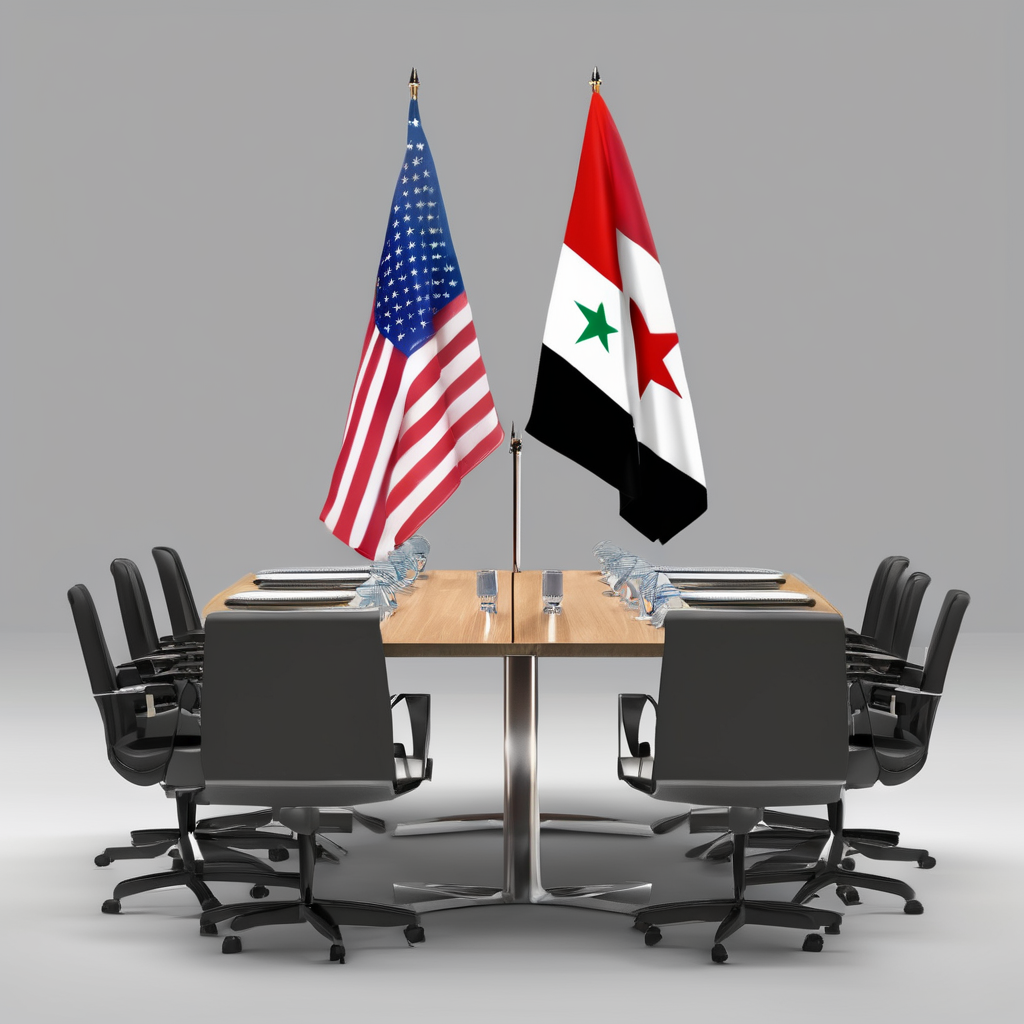The United States and Britain have recently lifted sanctions on Syrian President Ahmad al-Sharaa, a decision that coincided with the United Nations Security Council’s similar action prior to Sharaa’s forthcoming meeting with U.S. President Donald Trump. This move follows various diplomatic efforts aimed at re-establishing Syria’s connection with the international community in the wake of the ousting of former President Bashar al-Assad. The European Union (EU) plans to follow suit by removing corresponding sanctions as well.
Previously, the sanctions imposed on Sharaa and Syria’s Interior Minister Anas Khattab were linked to their designation as Specially Designated Global Terrorists due to past affiliations with groups like al-Qaeda. However, the U.S. State Department has indicated that this recent decision reflects a response to “progress demonstrated by the Syrian leadership” in critical areas, such as counter-narcotics efforts, the elimination of chemical weapons, and improved regional security.
Britain had initiated the process of lifting sanctions back in April, while the EU last month removed economic sanctions but maintained only arms and security restrictions. The European Commission emphasized its commitment to a peaceful transition in Syria, highlighting the importance of a Syrian-led process in rebuilding the nation. This pivot towards easing sanctions comes in light of ongoing advocacy from Washington aimed at alleviating the humanitarian crisis in Syria.
Sharaa’s upcoming visit to the White House will mark the first time a Syrian leader has traveled to the U.S. since the civil war began, underlining a significant shift in U.S. policy. Trump’s administration views the lifting of sanctions as a way to foster improved relations and stabilize Syria, particularly in the context of the Abraham Accords with Israel. This strategy is also part of efforts to weaken Iranian influence in the region.
Since assuming the presidency following the ousting of his predecessor by militant forces last December, Sharaa has been on a diplomatic offensive to strengthen Syria’s ties with major global players, including several trips to Gulf states. Nevertheless, challenges persist due to Sharaa’s controversial history and skepticism from various political groups, especially Israel.
While the lifting of sanctions is seen as a potential turning point that could improve humanitarian aid and investment in Syria, it arrives in a context of cautious optimism. Many U.S. political figures believe that this approach could contribute not only to stabilizing Syria but also to fostering broader regional peace. The complex dynamics within Syria, combined with its turbulent past, will undoubtedly influence future developments, but there is a growing sense of hope surrounding the nation’s potential for reconstruction and recovery.
